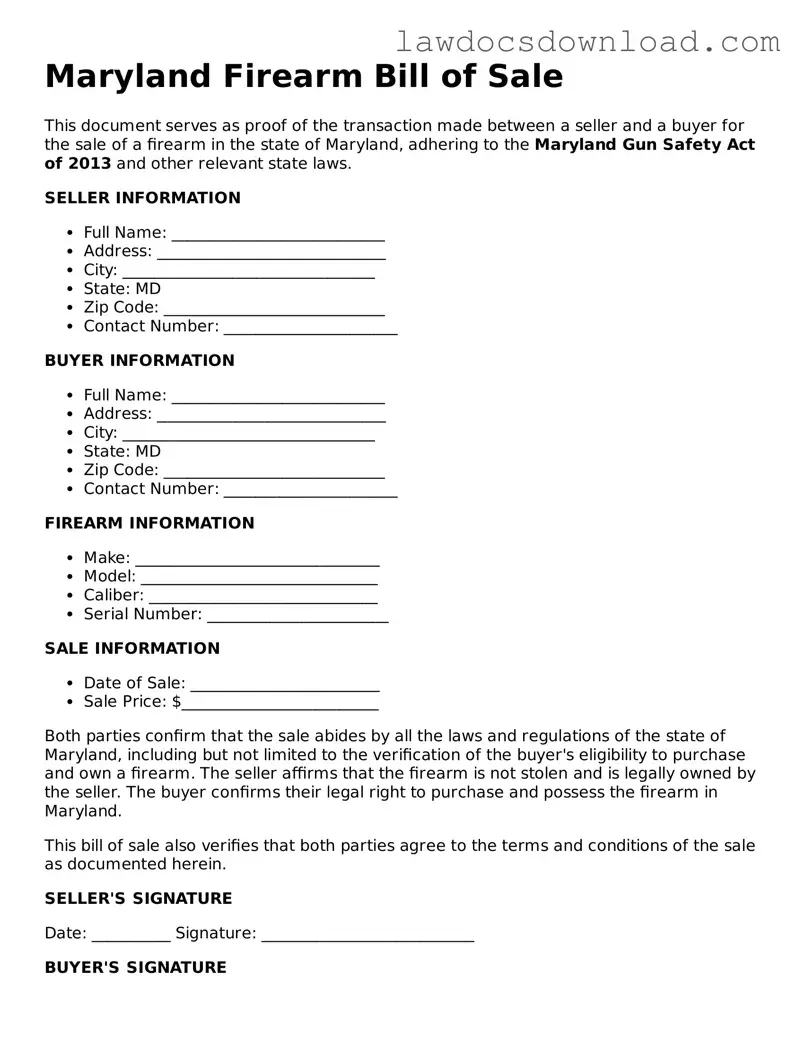The Maryland Firearm Bill of Sale form shares similarities with the Vehicle Bill of Sale document, primarily in its function to legally document the transfer of ownership from one party to another. Just as the Firearm Bill of Sale outlines the specifics of the firearm being sold, including make, model, and serial number, a Vehicle Bill of Sale details the make, model, year, and VIN (Vehicle Identification Number) of a car or truck. Both documents serve as critical proofs of purchase and are often required for registration purposes in their respective categories.
Similarly, the Boat Bill of Sale functions like the Firearm Bill of Sale by officially recording the sale and transfer of ownership of a boat. It collects detailed information about the boat, such as its length, make, model, and Hull Identification Number (HIN), analogous to the firearm's identifying details. This document, too, is vital for the registration process of the vessel in question, and to ensure the legal transfer of ownership, mirroring the requirements found with firearms sales.
The General Bill of Sale also aligns closely with the Maryland Firearm Bill of Sale, as it serves a broad purpose for the sale of various items, including electronics, furniture, and other personal property. The flexibility of a General Bill of Sale encompasses the recording of important details about the items being sold, similar to how a Firearm Bill of Sale specifies information about the firearm. Both documents act as receipts that confirm the transaction between the buyer and seller.
Equine or Horse Bill of Sale documents are another example remarkably similar to the Firearm Bill of Sale, dedicated to the specifics of buying or selling a horse. This document lists details such as the horse’s breed, date of birth, and registration number, akin to how firearms are detailed by their unique identifiers. The Horse Bill of Sale is an essential record for both parties, ensuring the legality of the sale, as is the case with firearm transactions.
A Pet Bill of Sale is often used in transactions involving the sale of animals, specifically pets, and it maintains several key parallels to the Maryland Firearm Bill of Sale. It includes identifying information about the pet, such as breed, age, and health information, which mirrors the firearm document's detailing of make, model, and serial number. Both documents ultimately serve to protect the rights of the buyer and seller while ensuring a clear transition of ownership.
Lastly, the Artwork Bill of Sale closely relates to the Firearm Bill of Sale as it's used to document the transfer of ownership of artwork from one individual to another. Detailed descriptions of the artwork, including the artist's name, the title of the piece, and its dimensions, are included—similar to the detail required in documenting a firearm’s specifications. This document, like the firearm bill of sale, provides legal proof of ownership and transaction details.

